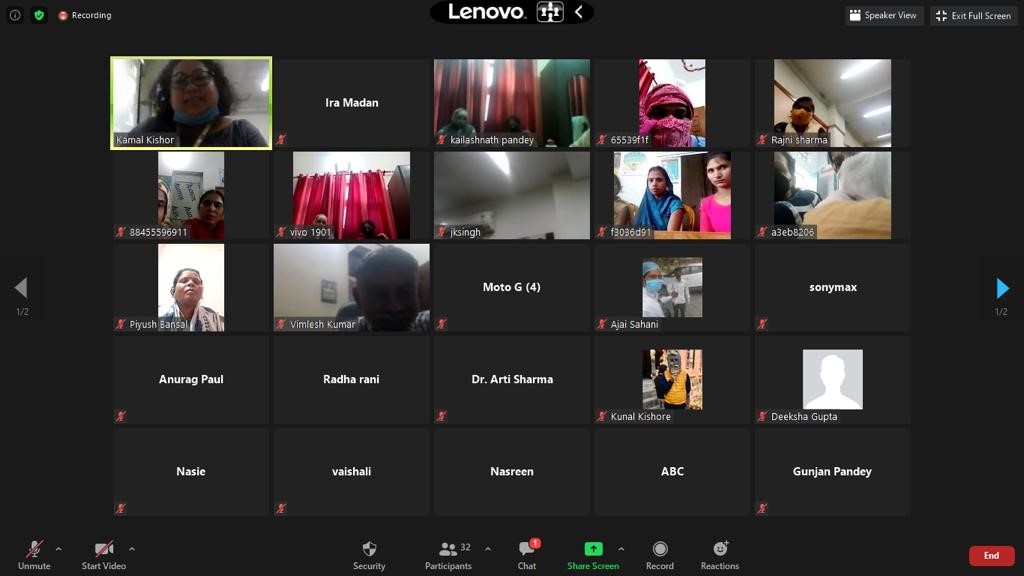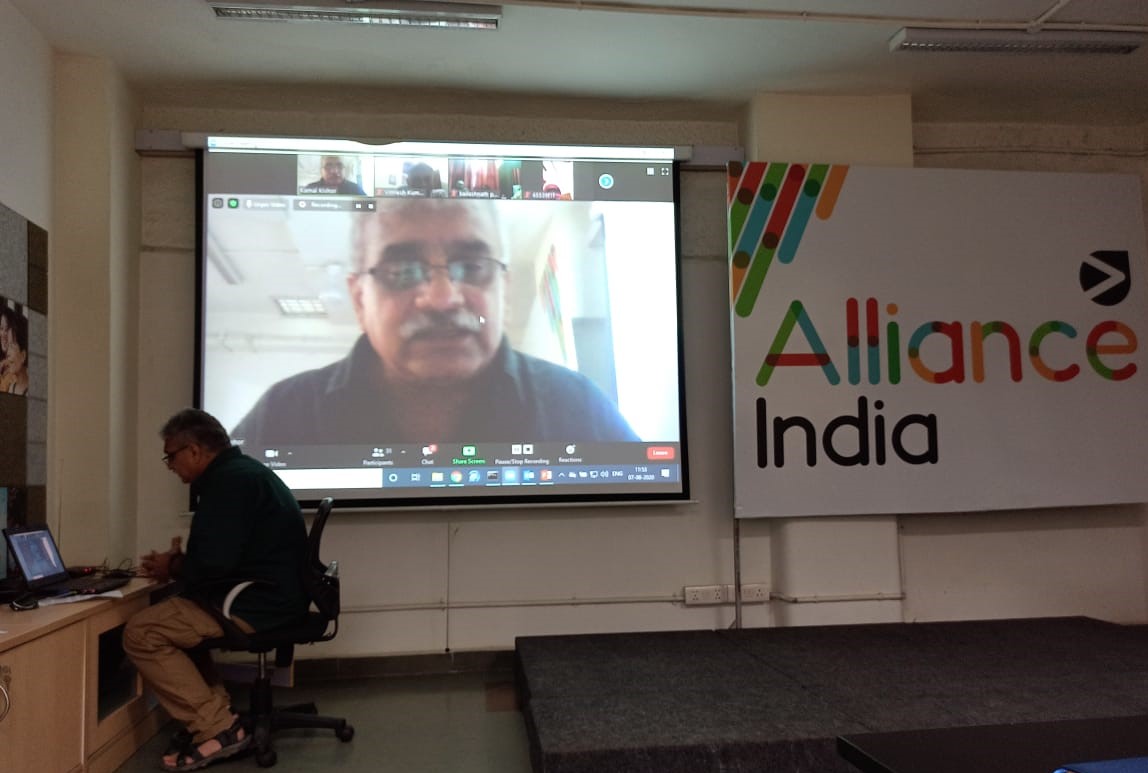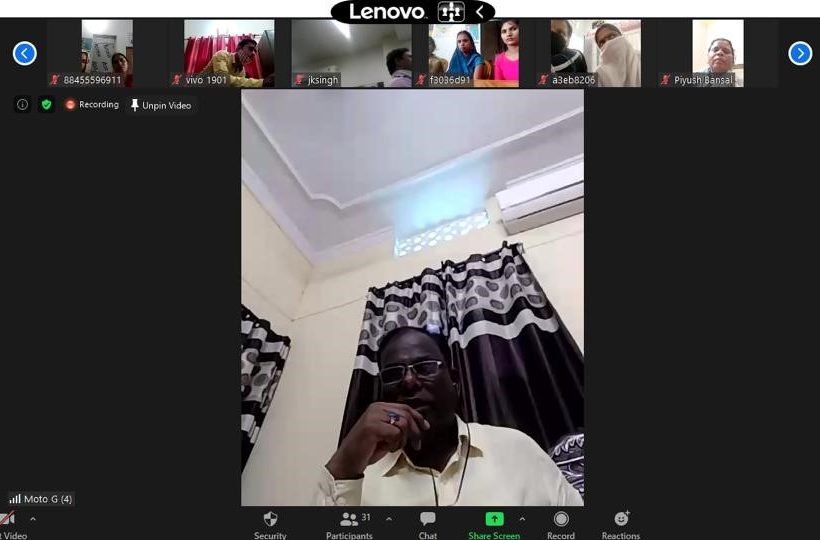“Female Sex Partners of People Who Inject Drugs” can be the game changers for India’s HIV Response

In many parts of Asia, the HIV epidemic is concentrated amongst the male members of the people who inject drugs (PWID) community, and their female sexual partners (FSP) who may be at increased risk for HIV and HCV (Hepatitis C Virus) infection not necessarily due to their own risk behaviours but of their sex partners both as drug users and clients of sex workers. While women are in general more susceptible to HIV from the biological point of view, prevailing socio-cultural norms increase the vulnerability and risk to contract HIV as women are often not able to negotiate safe sex or refuse sexual relations. Moreover, exposure to violence, which is still too often condoned, can add to this risk. When married or being a partner to a male drug user, women suffer even more. As per the National Integrated Biological and Behavioural Surveillance (IBBS) for the year 2014-15, 43% of drug users live with their families, but their wives or sex partners rarely use drugs themselves. Both as female drug users and as female partners of male drug users, they often face double stigma and discrimination and have hardly access to services, also because of a lack of specific services for them.
According to data from one of India’s only standalone FSP intervention site in Delhi providing services to over 400 FSPs; there is 4% HIV prevalence. The ongoing COVID-19 pandemic has further intensified the already existing vulnerabilities of the FSP and there is an urgency to intervene and address the health and linked social challenges of these vulnerable women.

Over the last one and half years, thanks to the leadership of Delhi State AIDS Control Society and our implementing partner i.e., Bhartiya Parivardhan Sanstha, Alliance India has been successful in developing a model intervention cum learning site which now has little over 400 FSPs accessing comprehensive HIV prevention services developed against the backdrop of a state of the art research that included a needs assessment. The study findings and the implementation experience was used to inform the service package that is customized for the needs of the FSPs.
Alliance India is now preparing to take this learning to more sites in India beginning with Uttar Pradesh (UP); considering the state now has the highest number of PWIDs (111,000) as per the latest Government of India estimates released by Ministry of Social Justice and Empowerment (MoSJE) in February 2019. Further, over 27% of PWIDs are HIV positive (IBBS 2014-2015) and are in dire need of HIV care and support services themselves besides their sex partners who are yet to be reached. As the first step in this direction, a virtual orientation cum knowledge sharing programme was organized jointly by Alliance India, Uttar Pradesh State AIDS Control Society and Uttar Pradesh Network of Positive People.
 Over 40 participants from Purvanchal Drug Users Samiti and NGOs Tharu Janjati Mahila Vikas Samiti (Gonda), Kushinagar Welfare for People Living With AIDS Society (Gorakhpur), Allahabad Network For People Living With HIV/AIDS Society, (Allahabad) and Sharnam Sansthan (Lucknow) participated in this event which was successful in developing consensus and outlining priorities to ensure FSPs don’t remain outside the reach of Mission Sampark and inter alia the 2030 global developmental targets.
Over 40 participants from Purvanchal Drug Users Samiti and NGOs Tharu Janjati Mahila Vikas Samiti (Gonda), Kushinagar Welfare for People Living With AIDS Society (Gorakhpur), Allahabad Network For People Living With HIV/AIDS Society, (Allahabad) and Sharnam Sansthan (Lucknow) participated in this event which was successful in developing consensus and outlining priorities to ensure FSPs don’t remain outside the reach of Mission Sampark and inter alia the 2030 global developmental targets.
Other Recent Articles
- Yoga for Wellness: Supporting People Living with HIV & NCDs 25 June, 2025
- The Unsung Heroes of HIV Care: Outreach Workers under the Vihaan Programme 8 May, 2025
- Men’s Mental Health Matters in HIV Care 1 April, 2025
- Transforming Lives through Health Interventions: My Visit to Narmadapuram Prison 11 July, 2024
- HIV and Ageing: Understanding the Unique Needs of Older Adults 20 May, 2024
- Youth Voices: Life with HIV in Contemporary India 26 September, 2023
- Empowering Transgender Community to create an Equal World 20 July, 2023
- Combating Stigma and Discrimination Among People Living with HIV 7 July, 2023
- Understanding the Significance of HIV Testing: Impact on Individuals, Relationships, and Society 22 June, 2023
- Empowering Lives during Unrest l Our Commitment to Manipur 5 June, 2023
- Made by Nicdark - Copyright 2020
- donations@ong.com
- volunteers@ong.com
- contact@ong.com
India HIV/AIDS Alliance (Alliance India)
A not-for-profit Section 8 Company with Registration No: U85310DL1999NPL098570
Contact
-
6, Community Centre
Zamrudpur Kailash Colony Extension
New Delhi – 110048 - +91-11-4536-7700
Download
©2021 All Rights Reserved by Alliance India



